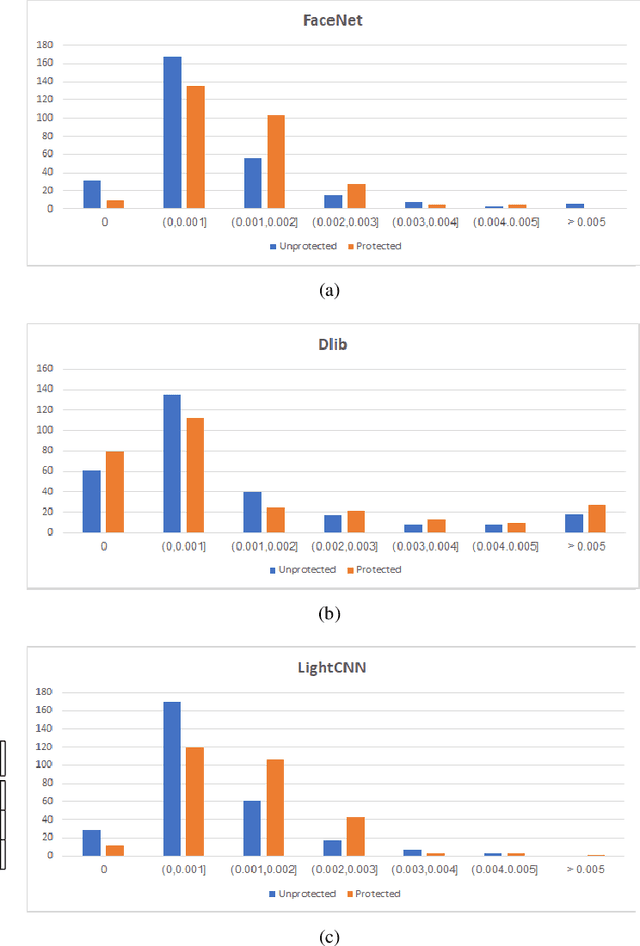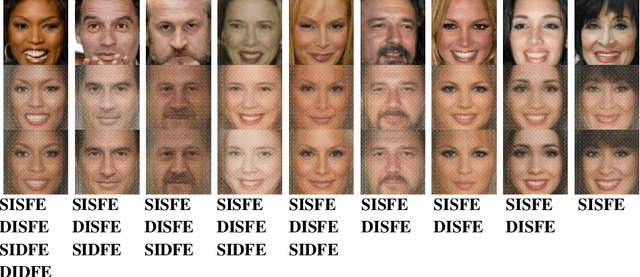Fuzzy Commitments Offer Insufficient Protection to Biometric Templates Produced by Deep Learning
Paper and Code
Dec 24, 2020



In this work, we study the protection that fuzzy commitments offer when they are applied to facial images, processed by the state of the art deep learning facial recognition systems. We show that while these systems are capable of producing great accuracy, they produce templates of too little entropy. As a result, we present a reconstruction attack that takes a protected template, and reconstructs a facial image. The reconstructed facial images greatly resemble the original ones. In the simplest attack scenario, more than 78% of these reconstructed templates succeed in unlocking an account (when the system is configured to 0.1% FAR). Even in the "hardest" settings (in which we take a reconstructed image from one system and use it in a different system, with different feature extraction process) the reconstructed image offers 50 to 120 times higher success rates than the system's FAR.
 Add to Chrome
Add to Chrome Add to Firefox
Add to Firefox Add to Edge
Add to Edge